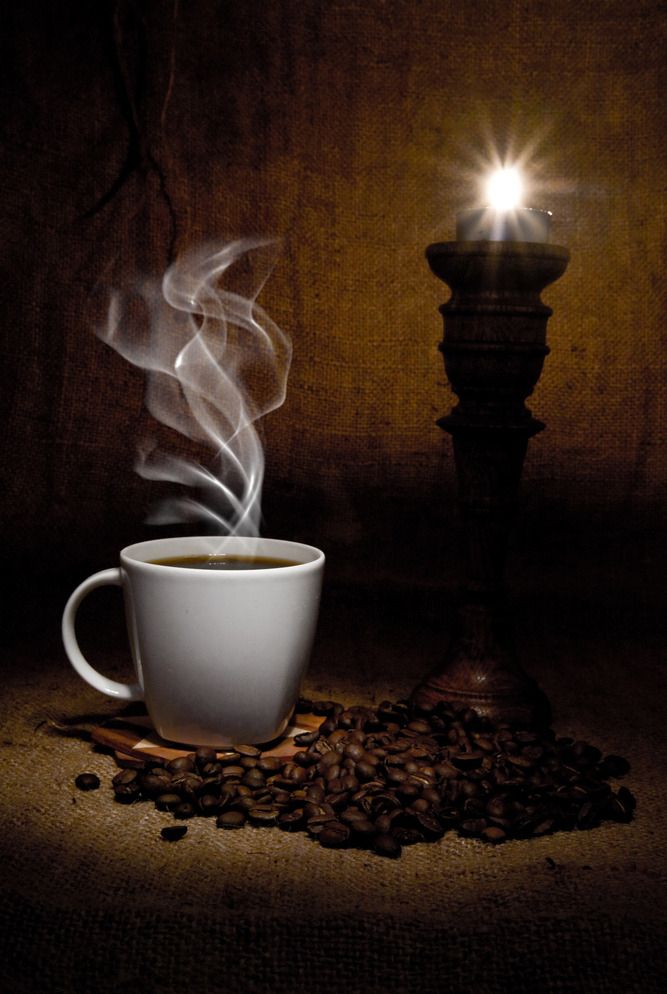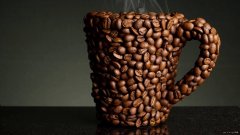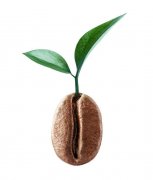Description of planting history and flavor of Himalayan manor in El Salvador

For professional baristas, please follow the coffee workshop (Wechat official account cafe_style)
History:
Tabl ó n or many Dlvisadero are located next to the famous finca Himalaya in Apaneca Heights.
More than 15 hectares of land was purchased by a family from Canada in 2009.
And they want to maintain this tradition. "El Salvadors's first boutique farm", because Himalaya is
The coffee tradition known as the Salaverr í a-Lagos family began in 1875. This is still
The Pacamara variety is grown and renewed mainly with bourbon varieties, which makes it famous in Australia, France, the United States and Canada.
Part of the success is due to the microclimate (microclimate), height and perfect picking of coffee and cherries (or even double selection to ensure quality).
This exquisite product is then processed in our own miniature mill (micro mill)
Miniature mills (Micro Mil) can store Rain Water and dry slowly at cold temperatures.
More important is the quality control and the treatment of environmental protection.
Producers have been committed to boutique coffee for 15 years and have won four TOP TEN COE.
Maraka Dula (Maracaturra): why do CoE award-winning estates grow mixed-race varieties?
Author: A. K. Molina
Special thanks to Mauricio Salaverria's Micro Coffee Festival in El Salvador for his guide and introduction.
Fetch to Perfect Daily Grind
Maraka Dula (Maracaturra): is a mixed breed, like beans (Maragogype) and Kaddura (Caturra) mixed crystallization, is very common in Nicaragua.
But this variety has been planted twice in Apaneca, El Salvador, on Finca Himalaya, a coffee farm in Cup of Excellence, which has won two prizes. We interviewed Mauricio Salaverria, the founder of Divisadero Coffees, the Cup of Excellence that won other estates more than twice.
We talked while he was acting as an international guide to Micro Coffee Festival in El Salvador. He explained why he thought growing Malakadura would lead to a higher quality and yield of coffee.
Bourbon, Pacas, Pacamara: varieties of coffee from El Salvador
Maracadura is very rare in El Salvador. Bourbon, Pacas and Pacamara account for 83% of total coffee production. (according to Consejo Salvadore ñ o del Caf é)
All three varieties can create a very excellent flavor. World Coffee Research (WCR) says they are "very good", "good" and "very potential at high altitudes". However, they are vulnerable to leaf rust and coffee berry diseases. El Salvador and other Central American countries were strongly affected by leaf rust in 2012.
Like Maracaturra, Pacamara is a hybrid of Maragogype-a variety of Maragogype and Pacas, rather than a high-yielding Kaddura. The non-profit organization Fundaci ó n para el Desarrollo Socioecon ó mico y Restauraci ó n Ambiental (FUNDESYRAM) reported that the average yield of Pacamara in El Salvador was 18 piculs per 1 to 2 acres. For Pacas, it is 24 to 70 centimeters per 1 to 2 acres, and for Bourbon, it is 25 to 55 centimeters per 1 to 2 acres.
Break with tradition: why Maracaturra? Mauricio currently grows Elephant beans, Orange bourbon, and Pacamara. Although his current coffee has excellent flavor, he still tries to find ways to improve.
Mauricio talked to Manuel Meza, the then research director of The Salvadoran Foundation for Coffee Research (Procaf é), and Manuel Meza told him that he had met Maraka Maracaturra in Matagalpa, Nicaragua, and had repeatedly won the top five positions in Cup of Excellence.
Manuel Meza was happy to help Mauricio, so he brought the seeds of Maraka Maracaturra to Mauricio to plant.
What's so special about Maraka Maracaturra?
Like Maragogype, Maracaturra coffee beans have a large size. Mauricio told me it inherited the excellent flavor and high yield of Kaddura (Caturra). Its short stature has plenty of leaves to ward off strong winds-useful for windy estates in Mauricio.
Unfortunately, this variety is prone to leaf rust and therefore requires a high degree of care. Its flavor is tropical fruit and bright acidity. It finished fifth in Cup of Excellence in 2015, and Mauricio believes its future harvest will be better than that of Pacamara. In the future, Mauricio plans to use semi-washing, honey treatment, and sun treatment to treat coffee fruits in Maracaturra. In doing so, he will be able to find the best way to deal with it. He uses an African bed, which stabilizes the flow of air and makes the drying process more uniform.
Every coffee farm, every coffee variety, long-term care, experiment, and observation are necessary to make good coffee. And Mauricio is very confident about the potential of Maracaturra.
For Mauricio, which strives to improve the quality of coffee, Maracaturra is a promising breed. It gives him more choices to offer to his guests. He was encouraged to find that guests from France, Australia and Canada welcomed the variety.
El Salvador
Coffee is mainly distributed in the west-Ahuachpan, Sonsonate, San Salvador: East-Usulutan, San Miguel; north-Chalatenango. The main cultivation of bourbon species, another famous Pacamara is found in El Salvador, but the number of El Savador is small, because of the larger particles, follow-up processing is quite difficult, but in Guatemala's Injerto shines brilliantly.
El Topacio: Maria Elena Avila de Muyshondt, owner of the manor, Apaneca-Ilamatepec mountain area, Sonsonate, Juayua. Have a small amount of Pacamara.
2015 4th 89.15
2014 11th 87.03
2011 40th 85.06
Himalaya-Divisadero: manor owner Mauricio Arturo Salaverria Caceres, production area Ahuachapan, Apaneca. The owner of the estate has five estates, each of which performs well because of its special micro-climate, high altitude, well-selected coffee cherries and coffee beans are handled by their own small processing plant.
2015 5th 89.03
2014 22th 85.74
2013 24th 85.43
2011 38th 85.17
Cruz Gorda 2015 6th 88.97
Villagalicia 2015 7th 88.74
Villagalicia 2014 13th 86.59
Tablon El Copo 2013 2nd 89.8
Santa Rosa (Santa Rosa, Saint Rose Manor): the owner, J. Raul Rivera S.A. De C.V., Alotepec Mountain area (near hill El Pital, the highest peak in El Salvador), Chalatenango, La Palma. In addition, there is a micro wet treatment plant in Finca La Esperanza. Ironically, the first place in 2014 was the Lot2 they tried to process for the first time, while the Lot1, which was planted at a higher altitude and was better taken care of, did not win the prize.
2015 8th 88.32 (Natural)
2014 1st 91.41 (Honey), 12th 86.97
2013 20th 85.77
2011 5th 90.69
Pe ñ a Redonda (Stonehenge): manor owner Carlos Mauricio Lemus Landaverde, producing area Chalatenango, La Palma. Named for its 180m long and 60m long and 60m boulder in the middle of the manor, it is 1400-1500m above sea level, with uneven terrain and full of rocks. The main varieties are 4max 9 Pacamara, 4pm 9 Pacas, 1max 9 Bourbon. Kaohsiung Xingtian Youjin.
2015 12th 87.09
2014 4th 89.15
2013 4th 88.8
2012 10th 86.62
Miravalle (Mirabella Manor): manor owner Jaime Ernesto Riera Menendez, producing area Santa Ana volcano, Santa Ana. At 1650m above sea level, Bourbon and Pacas are mainly grown. Usually only the manager and his wife live in the mountain. 70 employees only go up the mountain during the harvest period, and because of the high altitude, they have to pay 1.4 times the average salary. Fukuo of Banqiao has made progress.
2015 13th 87.06
2014 20th 85.88
2013 12th 86.33
2012 8th 88.32
2011 8th 88.89
La Monta ñ ita: manor owner Antonio Rene Aguilar Lemus, producing area Chalatenango, La Palma. The microclimate is excellent, Antonio advocates conservation, does not allow hunting, and does not use chemical pesticides, but uses organic cultivation.
2015 15th 87
2013 11th 86.8
2012 6th 88.44
Las Brumas Tablon La Monta ñ a (Yunwu Manor): manor owner Juan Jose Ernesto Menendez Arguello, producing area Sonsonate, Izalco. 1450-1700m above sea level, with rich volcanic soil, excellent micro-climate, named because of the clouds.
2015 24th 85.91
2014 17th 86.09
2013 22th 85.53
2012 1st 90.82
2011 23th 86.81
Tablon La Monta ñ a 2014 20th 85.88
Producer:
Mauricio A. Salaverr í a, owner of Divisadero Coffees ("vast views"), who has been involved in coffee production all his life.
This is thanks to their parents and grandparents who sincerely grow special coffee in West El Salvador.
From a very young age, he was reserved for the farm and the family's "beneficio" every weekend.
Mauriiio now manages his five small farms and eco-wet mills (wet mill) at Conception de Altaco.
This mill has a long history of ecological protection and the production of the best tree shaded bourbon,
Pacas, Pacamaras, maracaturras and other items.
Important Notice :
前街咖啡 FrontStreet Coffee has moved to new addredd:
FrontStreet Coffee Address: 315,Donghua East Road,GuangZhou
Tel:020 38364473
- Prev

El Salvador Himalayan Manor Flavor description characteristics planting History
For professional baristas, please follow the coffee workshop (Wechat official account cafe_style) Maraka Maracaturra: a mixed breed, such as Maragogype and Kaddura (Caturra), is very common in Nicaragua. But this breed has won one of the Cup of Excellence awards twice in Apaneca, El Salvador.
- Next

Flavor description characteristics of award-winning situation of single bean coffee beans in El Salvador Himalayan manor
For the exchange of professional baristas, please follow the coffee workshop (Wechat official account cafe_style) Himalaya-Divisadero: Mauricio Arturo Salaverria Caceres, landowner, Ahuachapan, Apaneca. The owner of the manor owns five estates, each of which performs well because of its special micro-climate, high altitude, carefully selected coffee cherries and coffee beans.
Related
- Detailed explanation of Jadeite planting Land in Panamanian Jadeite Manor introduction to the grading system of Jadeite competitive bidding, Red bid, Green bid and Rose Summer
- Story of Coffee planting in Brenka region of Costa Rica Stonehenge Manor anaerobic heavy honey treatment of flavor mouth
- What's on the barrel of Blue Mountain Coffee beans?
- Can American coffee also pull flowers? How to use hot American style to pull out a good-looking pattern?
- Can you make a cold extract with coffee beans? What is the right proportion for cold-extracted coffee formula?
- Indonesian PWN Gold Mandrine Coffee Origin Features Flavor How to Chong? Mandolin coffee is American.
- A brief introduction to the flavor characteristics of Brazilian yellow bourbon coffee beans
- What is the effect of different water quality on the flavor of cold-extracted coffee? What kind of water is best for brewing coffee?
- Why do you think of Rose Summer whenever you mention Panamanian coffee?
- Introduction to the characteristics of authentic blue mountain coffee bean producing areas? What is the CIB Coffee Authority in Jamaica?

